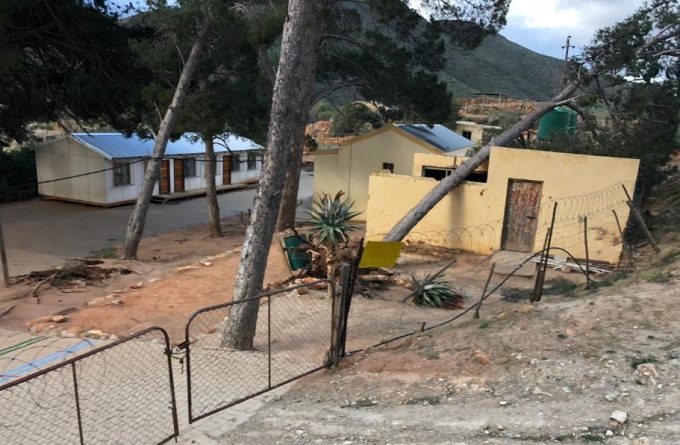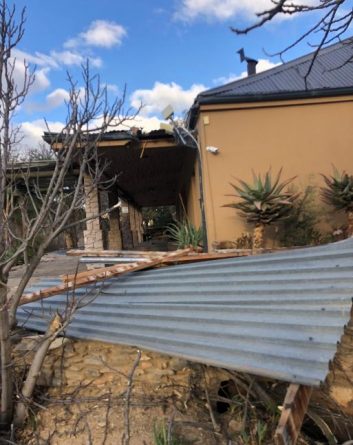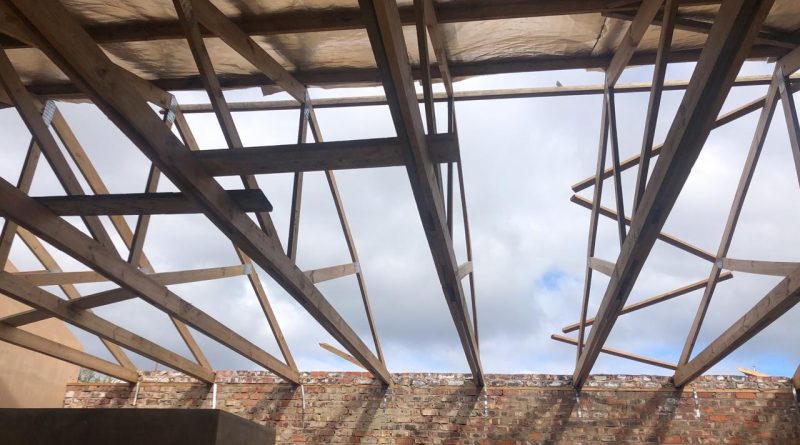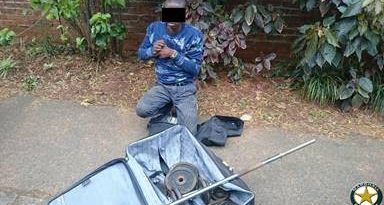How can we limit the damage caused by strong winds to our homes?
South African homeowners are mostly spared the devasting damage from hurricanes and tornadoes. We are however familiar with terms such as the “Cape of Storms” or “The Windy City” and are often confronted by damage from strong winds! What can we do to limit this damage?
Prepare for Emergencies
Before discussing any physical preventative measures, it is important to understand that your life and the life of your loved ones remain the Number One Priority!
- Prepare an emergency plan.
- Decide on a safe place in your home to shelter away from physical danger during a storm.
- Shelter in the basement or go to a small interior room in the centre of the house. Do not stand near doors or windows.
- Have an emergency kit with a flashlight (and extra batteries!), a first aid kit, blankets, food supplies and water within reach.
- Do not forget to bring your pets indoors.
- Shift essentials like food and clothing and other valuables to safe spaces in your home and move furniture away from the walls to limit the damage.
- If you find yourself in an open area with no shelter nearby, take cover in a ditch or hollow. Lay face down on the ground and protect your head with your hands.
- If you are in your car, open the windows slightly and park off the road away from tall objects and power lines with your parking brake on.
Identify and Protect Areas of Vulnerability
Our homes have 4 main spots of weakness: the roof, windows, doors, and garage. If they are not well maintained and in poor condition, they can get seriously damaged in a windstorm. Check these weak spots regularly and get any repairs done promptly.

The Garage and other Doors
- Reinforce the garage door before a storm arrives.
- Strong winds can blow off a garage door and damage what is inside, potentially causing structural damage to the entire home.
- Therefore, many homeowners choose to install wind-resistant braces.
- Consider installing steel or aluminium storm shutters on your French doors and sliding glass doors. You can close the shutters quickly to prevent flying objects from breaking glass.
- Before a storm, make sure all doors and windows are closed and locked securely.
The Roof
- Secure your roof. Your roof is the first line of defense against the elements.
- At least once a year, climb the ladder and give your roof a once-over.
- Debris on the ground from broken slates or tiles and leaning chimneys are tell-tale signs that your roof may need some attention.
- Before the storm picks up, make sure you secure any metal roofing parts by calling a contractor to bind them down with screws and bolts.
- Damaging winds can tear away entire panels, making it easier for the wind to enter the home.
- Contractors should secure metal roofing and siding to the frame of the home with exposed fasteners, such as screws and bolts, or with concealed clips.
- During strong winds even small weaknesses like a water-damaged spot or a few missing shingles could lead to a catastrophic failure.
- When the wind blows roof tiles and shingles from your roof, it makes your home vulnerable to rain, creating the need for emergency roof repair.
- Check that all guttering and pipes are fixed securely and free from debris to prevent overflow and damage to plasterwork.
- Strong winds can seriously damage guttering so try to carry out regular checks throughout the year.
The Windows
- You might want to consider installing steel or aluminium storm shutters if the wind continues to grow stronger.
- This will protect your windows from shattering in case flying objects hit your glass, or from bursting open if they are hit by strong gusts of wind.
 Dangers around the House
Dangers around the House
Trees and the Garden
- Remove trees too close to the home.
- Make sure trees sit far enough away from your home to prevent damage if they fall.
- Generally, a tree should sit farther away from the home than the height of the tree when fully grown.
- Look for signs of decay in the garden.
- During storms, dead or weakened trunks and limbs are susceptible to breakage.
- Prevent decay with proper tree maintenance.
- Before strong winds hit, get rid of overhanging, loose, or dead branches to prevent them from breaking off during strong gales and causing damage to your home and its surroundings.
- Keeping a tidy garden will help add to your sense of calm in the eye of the storm.
Anchor Movable Objects and Projectiles
- If a storm is heading to your area, bring in items that could be blown or pushed around in heavy winds.
- Damage to a home is often caused by projectiles blowing in the wind, not the wind itself.
- During strong winds, even a small yard decoration or stray limb can cause destruction.
- Keeping your yard clear of debris will minimize the risk of damage to your home.
- If you know about a storm in advance, make sure you anchor down or put away anything in your yard that could become airborne.
- Anchor storage sheds and outbuildings with a permanent foundation or straps and ground anchors.
- Secure smaller objects, such as grills and outdoor furniture, by bolting them to decks or patios.
- Use ground anchors with cables and chains.
- Use your shed or outhouses to store away flower pots, garden gnomes, garden furniture, barbecues, children’s toys, bikes, lawnmowers, and anything else that is at risk of being blown away in windy weather.
- Larger outdoor items such as patio tables, grills, and trash containers should be pushed up against the wall.
- You can also move smaller objects inside if you have adequate warning before a storm.

Parking the Vehicles
- Where you can, park your car in a garage.
- Park your car away from trees and other objects uprooted by strong gusts.
- Avoid parking under streetlamps and power lines.
- Make sure to check that your car insurance provides you with the right cover so that you can have peace of mind knowing that you’ve got the protection you need when you need it most.
After the Storm
- Once the storm has passed, take some time to inspect your house and property for debris and damage.
- If your building smells of gas, stay outside.
- Keep away from downed power lines and call for assistance.
- Let your insurance provider know if the wind has damaged your home so they can walk you through the claims process, and don’t forget to make an inventory of your damaged property.
Also view:
Safe Driving with Trucks in Strong Winds




